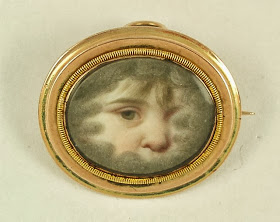 |
| Window valance made from designer fabric samples |
For those who love textiles, particularly previously used textiles, and are fond of free or very cheap materials, fabric sample books are a bonanza. These are bound books containing a line of fabric, generally used by interior designers and upholstery shops to show clients the possibilities. They look like this:
 |
| Fabric sample books |
Savvy makers can occasionally pick these up at white elephant sales and thrift stores, and the determined may visit local upholstery, drapery, or design studios and simply ask for sample books that are being thrown out to make way for the new season. The books I just scored at a Carmel thrift shop cost just fifty cents each for an entire book, and contained particularly tempting fabric. However, as anyone who has tried to salvage fabric from these books knows, the paper and glue "frame" backing the fabric is almost impossible to completely remove. The usual solution is to cut out a reduced square from inside the frame, sadly bidding all the wastage around the edge adieu.
A happy alternative to all of that waste is to use the entire piece—paper, glue, and all—to create a colorful banner or window valance like the one below. The paper backing becomes an asset instead of a hindrance, and helps maintain the shape of the valance or banner pieces.
 |
| Fabric sample valance |
This particular fabric sample book was comprised of beautiful, transparent fabric in a variety of patterns.
 |
| Pages from fabric sample book. |
After cutting pages away from the cardboard binding, the first step was to trim the paper frame border around each sample to 1/2".
The next step was to measure in 1.25" from the edge of two opposite triangle points, and then fold and cut the fabric at those points to create two separate triangles, one larger and one smaller.
Triangles were then arranged along a stretch of wide ribbon matching the window measurement, alternating and overlapping large and small triangles and artfully mixing patterns. Since it's unlikely a stretch of alternating triangles will exactly match your window measurement, stop whenever you can't fit another triangle and allow an equal length of ribbon at either end to complete the window measurement. Stitch everything into place.
 |
| Arranging and stitching triangles along the ribbon |
Attach the valance to outside of existing curtain hardware. I used Scotch mounting tape, which is sticky on each side, easy to work with, and removable.
 |
| Valance in place |
This wasn't the end of this round of fabric sample books. Other sets included embroidered silk from China, some embellished with insects, frogs, polka dots, and spirals. I culled through those, cutting the usable fabric completely away from the paper frames, and ended up with a rich assortment of fabric patches.
 |
| Fabric sample patches |
I've started using these, along with other pleasing fabric from the sample books, to continue the endless patching on both a vintage quilt originally stitched by my southern grandmother and now an evolving crazy quilt, and a quilt I stitched myself that has started to go.
 |
| Fabric sample patches on quilts |
Time to go out and score some fabric sample books of your own...













































